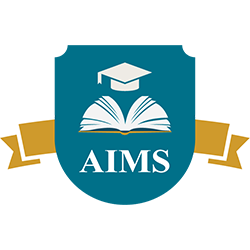Are you worrying about showing proof of funds in Canada? As a student from another country studying in Canada, there are different ways you can show Immigration, Refugees, and Citizenship Canada (IRCC) that you have enough money to come here.
When you apply for a Canadian study permit, you must show that you have enough money to care for yourself and any family members who come with you to Canada.
Proof of funds in Canada according to the IRCC
According to Immigration, Refugees and Citizenship Canada (IRCC), they have set a proof of funds requirement using “base amounts.” These amounts cover all expenses related to transportation and other things like books, equipment, and supplies. This shows that applicants for Canadian study permits have enough money to pay for the following costs:
- The first-year tuition fees
- Cost to travel to and from Canada
- One-year living costs in Canada
IRCC 8 ways to show proof of funds in Canada
The IRCC lists 8 ways to show proof of funds in Canada for international students who want to apply for a Canadian study permit.
- A Canadian bank account with the applicant’s name (if they have transferred money in Canada Earlier)
- A Guaranteed Investment Certificate (GIC) from a participating Canadian financial institution
- Proof of an education or student loan from a bank
- Bank statements of the applicants for the past four months
- A bank draft that should be converted to Canadian dollars
- Proof that the applicant has already paid tuition and accommodation fees
- A consent letter from the person who is sponsoring the money
- Proof of funding paid from within Canada (if the applicant has a scholarship or is enrolled in a Canadian-funded educational program)
New cost of living for the financial requirements of IRCC
The IRCC announced a new cost of living for proof of funds in Canada. Such as-
Since the beginning of this year, IRCC has raised the amount of money that study permit applicants outside of Quebec need to show they have for living expenses. Now, it’s $20,635 for the year 2024.
It’s important to know that this new amount is extra money needed on top of the first year’s tuition fees and travel expenses. IRCC has also said they’ll change this living expense amount every year, depending on the latest low-income numbers from Statistics Canada.
*This new cost-of-living proof of funds requirement in Canada does not apply to any study permit applications submitted to IRCC on or before December 31, 2023.
Proof of fund amounts in Canada by IRCC
All provinces except Quebec:
Before December 31, 2023, here’s how much money study permit applicants need to show they have each year to support themselves and any family members who came with them to Canada, not counting tuition fees.
- The applicant/student: $10,000
- The applicant’s first accompanying family member: $4,000
- Every additional accompanying family member: $3,000
New amount of proof of funds in Canada for international students
Starting from January 1, 2024, here’s how much money a study permit applicant needs to show they have each year to support themselves and any family members with them in Canada, without counting tuition fees.
- Study permit applicants (by themselves): $20,635
Number of family members (including the applicant):
- Two people: $25,690
- Three people: $31,583
- Four people: $38,346
- Five people: $43,492
- Six people: $49,051
- Seven people: $54,611
- Each family member (if more than seven people): $5,559
📌 Note: Once you’re clear on your proof of funds, check the September, January, and May intakes in Canada to plan when to start your studies.
Quebec
International students going to Quebec have to show they have enough money according to different rules compared to students going to other parts of Canada. Quebec’s ministère de l’Immigration, de la Francisation et de l’Intégration (MIFI) decides these rules.
Stay tuned to AIMS Education to get more updates on the Canadian immigration system and student visas in Canada.

AIMS Education is a reliable study abroad consultancy firm guiding students in selecting courses, and universities and helping them apply and secure their student visas. Also, AIMS Education is a British Council-certified agent and is listed on the British Council’s global agent list. We provide student recruitment services in the UK, USA, Australia, Canada, Hungary, Poland, Denmark, Malta, Finland, France, Germany, Austria, Spain, Sweden, Malaysia and UAE. Not only this but also AIMS Education is an ICEF Accredited Agent, UCAS Registered Centre, Expatrio Partner, PTE and Language Cert Partner. With an almost 98% student satisfaction rate and 10+ global awards, AIMS Education is now a name of trust among study abroad aspirants.

